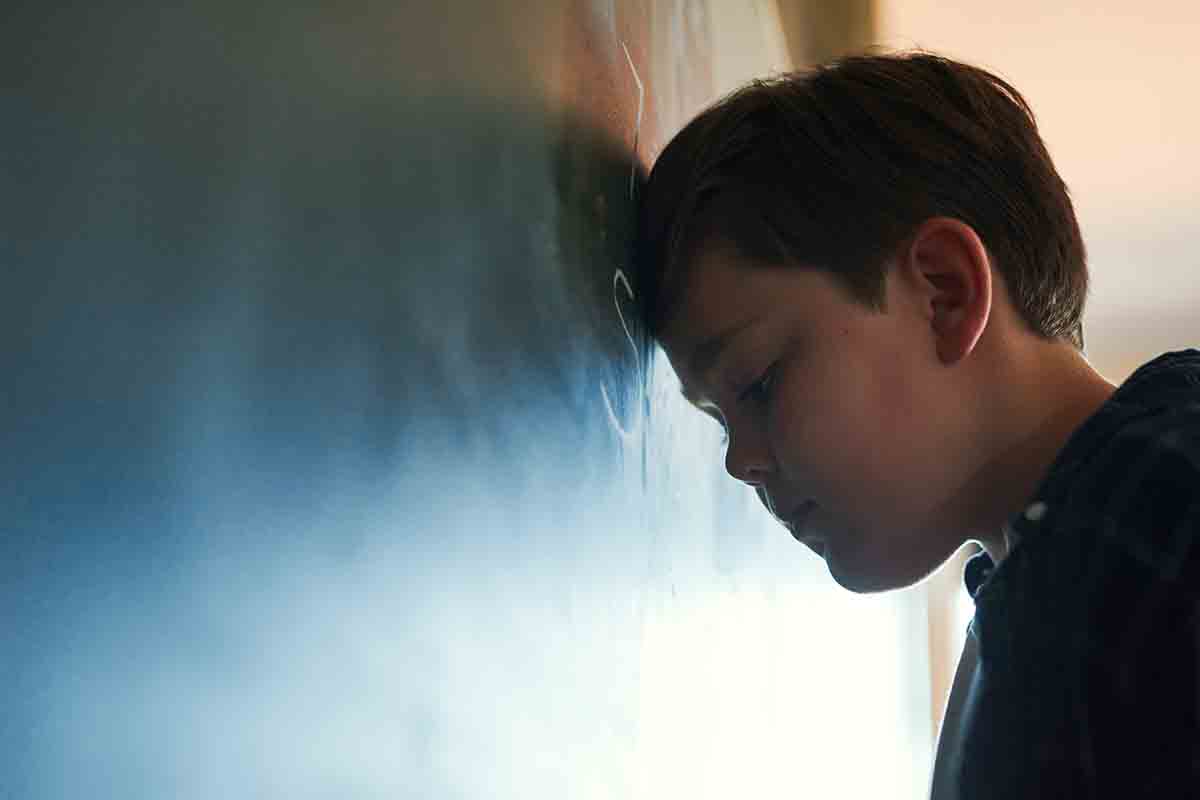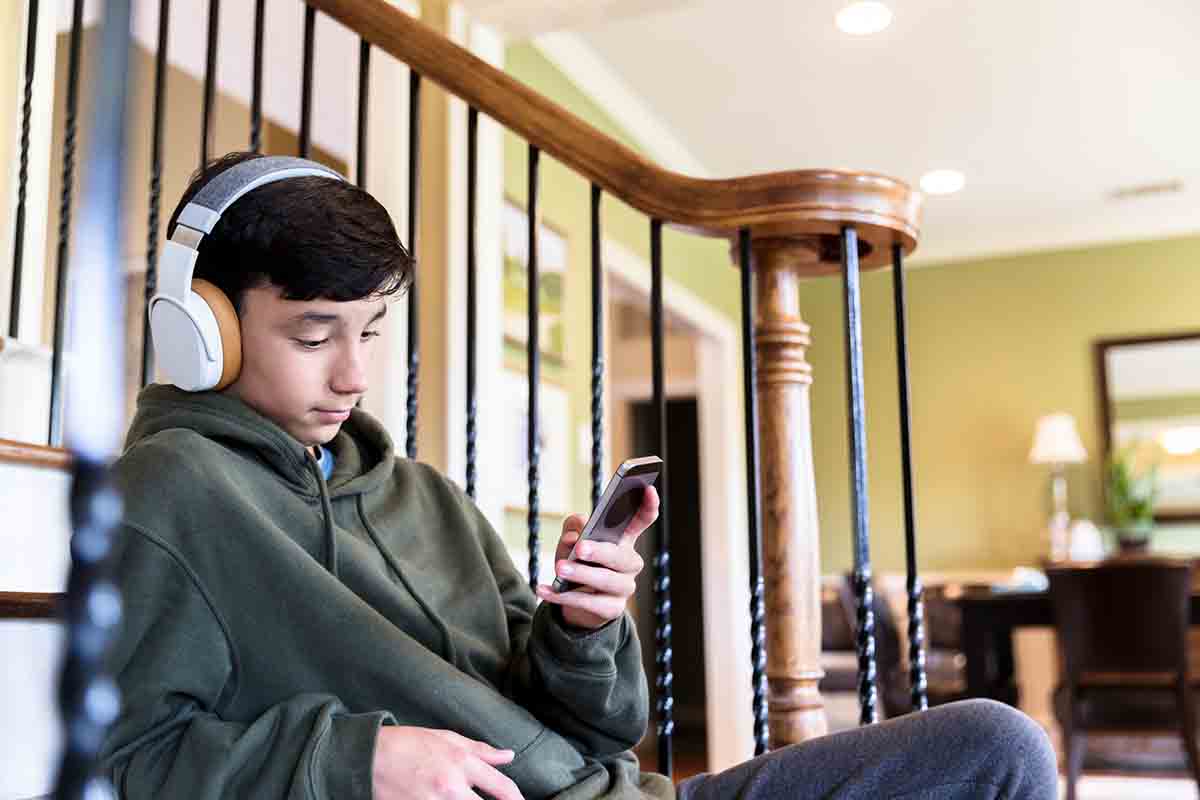11 Warning Signs Your Child Is Being Bullied

If your child is the victim of bullying, they’re sadly not alone. According to the American Academy of Child and Adolescent Psychiatry, at least half of all school-aged children will experience some form of bullying in their lives, with 10 percent of children being bullied regularly [1].
Your child may not tell you if he is being bullied, which makes it even more important to know the warning signs and take action. This is especially true because bullying comes in different forms these days.
We’re going to take a look at the different types of bullying, as well as signs to look for and how to talk to your child if they are being bullied.
Related: How to Stop Bullying: Real Solutions for Kids and Parents
Different Types of Bullying
If your child is being bullied, it may be happening in several different ways.
Physical Bullying
Physical bullying can be the most obvious to see. If you notice bruises on your child or other marks, it may be an indication that your child is the victim of physical bullying.
Verbal Bullying
People who are verbal bullies, use words, statements, and name-calling to control their targets. They may choose their targets based on the way they look or act. It may be difficult to determine if your child is the victim of verbal bullying because there are no physical signs.
Cyberbullying
Cyberbullying uses the internet, smartphones, social media, and other technology to harass or threaten another person. It is becoming a more common form of bullying because bullies can hide behind a screen. The victims of cyberbullying can feel especially targeted because this type of bullying is invasive.
Sexual Bullying

Sexual bullying comes in the form of harmful or humiliating actions that target a person sexually. This can include crude comments or gestures, as well as sexual propositioning.
Sexting can also lead to sexual bullying. If a teen sends inappropriate photos to a boyfriend or girlfriend, they may get threatened that they’ll send out the photo widely if they break up.
Prejudicial Bullying and Racism
Prejudicial bullying deals with the prejudices that tweens and teens have toward people of different races or religions. Victims of prejudicial bullying such as racism are singled out because they may be different from the group.
It is possible that your child may be the victim of more than one type of bullying at the same time, which is why it is important to know the signs so that you can help.
Signs Your Child is Being Bullied
There are various signs of bullying to be on the lookout for that can raise red flags:
1. Physical Signs
Bruises, scrapes, physical marks, and other unexplained injuries can be signs that your child is being physically bullied. Be aware if your child starts frequently wearing long sleeves, even in warm weather, as this could be a sign that he is trying to cover something up.
Physical ailments such as headaches and stomachaches are other possible indicators. Take note if your child frequently visits the nurse with these symptoms. Stress and anxiety from bullying might be the cause.
2. Lost or Damaged Physical Items
Kids can be clumsy and sometimes careless — we all know that. But, if your child frequently comes home with torn clothing, missing personal items (such as shoes, glasses, or jewelry), or damaged school items (such as his backpack or textbooks), something else might be going on.
3. Loss of Friends and Social Isolation
Chances are you know your child's friends. Take note if your child suddenly stops talking to her closest friends and begins to avoid social situations. It can be a red flag that her friends have formed a clique and excluded her, or that she's become a target.
4. Self-Destructive Behaviors
The low self-esteem and depression that stems from bullying can cause a child to start engaging in self-destructive behaviors. Any talk of self-harm or suicide is a major red flag and should be addressed immediately. Contact the National Suicide Hotline for help.
5. Decline in School Performance

If your child continuously doesn’t want to go to school or fakes illnesses, something more may be going on that she isn't telling you. Signs of slipping grades, trouble concentrating on schoolwork, and lack of focus should also sound your alarm. This is especially true if your child was a good student and is suddenly having trouble in school.
6. Changes in Routine or Interests
Keep an eye out for sudden changes in interests or commitments, such as skipping sports practices or suddenly dropping out of an after-school activity. While your child might have truly lost interest, she could be trying to avoid confrontations and certain people.
7. Difficulty Sleeping
Trouble sleeping, frequent nightmares, and bedwetting could all be indications that something is troubling your child. If sleep problems are coupled with some of the other signs mentioned above, there may be issues going on.
8. Strange Bathroom Habits
Does your child wait until she gets home from school to use the bathroom? Although it may seem strange, it's a possible indicator of bullying. School bathrooms are often unsupervised, making them a hot spot for bullying to occur.
9. Crying Spells
While teens can have a range of emotions, if you notice that your teen has unusually intense emotional reactions about school or social activities, it could be a sign they’re having anxiety over being bullied.
10. Changes in Eating Habits
Emotional distress from bullying can impact your child’s appetite. They may show signs of binge eating, skipping meals, or different changes in their eating habits. Unexpected eating changes can be a result of stress or a bully stealing food or lunch money.
11. Emotional Outbursts
There can be several emotional signs of bullying as well. A child may behave more aggressively and have other changes in their moods. You may also notice that your child has become more anxious or depressed. This could be a major red flag that they are being bullied.
Signs of Cyberbullying

Cyberbullying is another intense type of bullying that can impact children of all ages. If you’re unsure if your child is a victim of cyberbullying, here are some things to look for [2]:
Obsession or Withdrawal from Devices
If a child is being bullied online, you may notice they are either completely withdrawing from using their devices or have become overly attached to them. They may become overly protective of their devices for fear you’re going to find something on them.
Keeping screens and other devices in commonly used areas is the best way to keep a watchful eye. On the flip side, they may not want to be near their devices because that’s the source of the bullying.
Upset or Frustrated After Going Online
When you notice your child becoming extremely angry over what is on their screen, it may be a red flag that there is something else going on. Any outbursts of anger are something you want to be aware of.
More Depressed After Using Devices
If your child looks suddenly depressed after using devices, you’ll want to know what’s going on behind the screen. You should be concerned if your child wants to be alone all of the time as well. Many victims of bullying pull away from their families because they don’t want to talk about what is going on.
How to Address Bullying with Your Child
When you know your child is being bullied, you want to help them in any way you can. Here are some things you can do to address bullying with your child:
Be Supportive
If your child tells you he is being bullied, you want to be supportive. Calmly listen so they know you care. Kids are often reluctant to tell adults they are being bullied because they feel embarrassed.
They may also feel as though the bullying is their fault. You want to reassure them that it isn’t and listen to them so that they will feel more comfortable telling you things.
Find a Teacher or Administrator at Your Child’s School Who Will Help

Look for a teacher or administrator at your child’s school who will help you and your child. You want to make sure that the school takes bullying seriously and will do whatever it can to stop it. Also, if your child doesn’t feel comfortable talking to you about their problems, they may feel more comfortable talking to a favorite teacher or counselor.
Help Your Child React Appropriately to Bullies
Bullies tend to prey on people who they know won’t react to them or won’t stand up for themselves. Teach your child how to react so that they can try to prevent themselves from being bullied.
Examples of this can involve role-playing so they know what to do or say. While this may not stop all bullying behavior, it may help your child from becoming a victim.
Build Your Child's Confidence
Bullying can reduce a child’s self-esteem. As a parent, you want to help to build their self-confidence. Encourage hobbies that you know they are good at to help build their self-esteem. Praise them when they do well and reinforce the positive behaviors you want to see more of.
Bullying Prevention Resources
If your child is the victim of bullying, there are several resources that you can use to help:
- Stopbullying.gov
- National Bullying Prevention Center
- Bully Police USA
- National Education Association
- Safe Schools Coalition
As a parent, you want to be there for your child and help them deal with bullies. You also want them to know they can come to talk to you about anything. Knowing they have someone in their corner can help them feel as though they can work through the issues they are having with bullies.
Sources:

